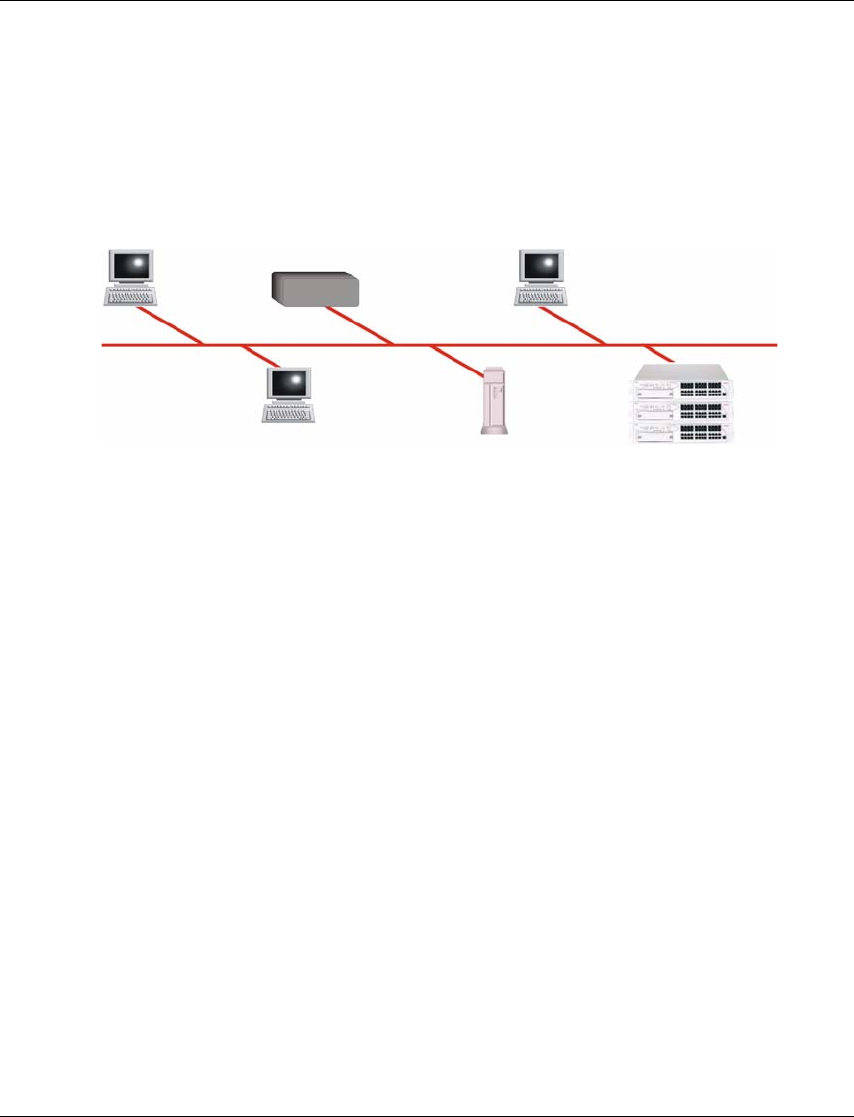
Chapter 12 Avaya P330 Layer 3 Features
Avaya P332G-ML User’s Guide 131
VRRP Configuration Example 1
Figure 12.3 VRRP Configuration Example (Case 1, Case 2)
Case#1
One main router on IP subnet 20.20.20.0 (P333R/P330-ML or any third-party router
which supports VRRP) and a redundant router (more backup routers may be
configured)
• The P330 itself must have an interface on the IP subnet (e.g. 20.20.20.2)
• All the routers are configured under the same VRID (Virtual Router ID- e.g.1)
This configuration must be done per VLAN).
• The P330 requires that this VRID must not be used in the network (even in
different VLAN)
• By the end of the routers configuration, and when the network is up, the main
router for each virtual router will be elected according to this order of
preference:
— The virtual router IP address is also the router’s interface IP address
— It has the highest priority (you can configure this parameter)
— It has the highest IP address if the previous cases do not apply
Backup Router 1
VRID: 1, IP: 20.20.20.2
Ass. IP: 20.20.20.1
VMAC: 00005E000101 (VRID)
Main Router 2
VRID: 2, IP: 30.30.30.1=Ass. IP
VMAC: 00005E000102 (VRID)
Backup Router 2
VRID: 2, IP: 30.30.30.2
Ass. IP: 30.30.30.1
VMAC: 0005E000102 (VRID)
Main Router 1
VRID: 1, IP: 20.20.20.1=Ass. IP
VMAC: 00005E000101 (VRID)
IP: 30.30.30.20
IP: 20.20.20.10
DG: 20.20.20.1
IP: 20.20.20.20
IP: 30.30.30.10
DG: 30.30.30.1


















